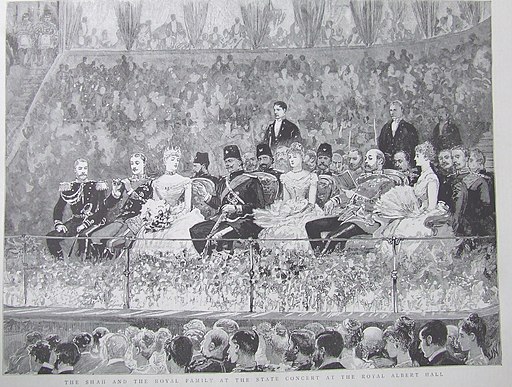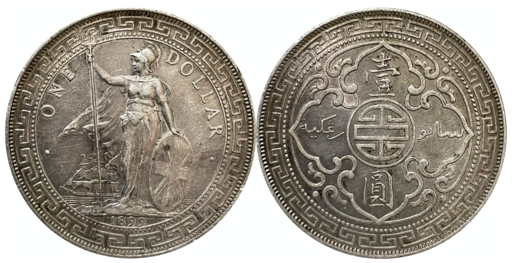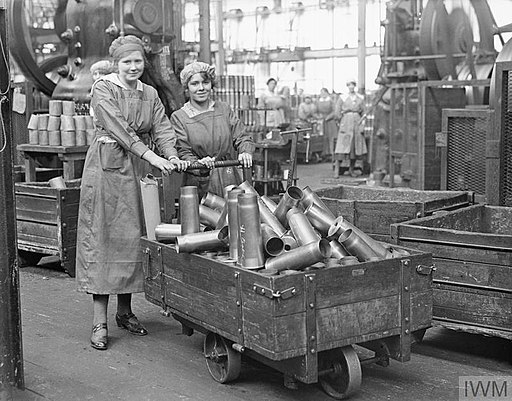Historiography of the British Empire
The Rise of Imperial to Industrial
By Hannah Beck
Historiography of the British Empire:Imperialism
Introduction
When someone thinks of an empire they probably think of a great superpower that influenced the world in terms of military and technological advancement. But what is even more interesting here, is that there’s actually a lot more to it. An empire can also be defined as a national symbol of industrial advancement and cultural impact that seeps into history and can still be seen as time goes by. As the authors of Britannica can detest, “British Empire, a worldwide system of dependencies—colonies, protectorates, and other territories—that over a span of some three centuries was brought under the sovereignty of the crown of Great Britain and the administration of the British government. The policy of granting or recognizing significant degrees of self-government by dependencies, which was favoured by the far-flung nature of the empire, led to the development by the 20th century of the notion of a “British Commonwealth,” comprising largely self-governing dependencies that acknowledged an increasingly symbolic British sovereignty. The term was embodied in statute in 1931” (Britannica. 2021). The British, even from the beginning, had deep roots in the world and the influences that went with it. The rise of the British empire was rooted in its ability to adapt with the times and advancements of the world. As author John Gascoigne of Expanding Historiography of British Imperialism explains, “The ideological origins of the British empire which explicitly seeks to integrate imperial and domestic history through an analysis of the ideological wellsprings of empire and one of its major themes is the extent to which the origins of the early British empire were also linked to the creation of an entity called Britain” (Gascoigne. 586). There were and still are many things that Great Britain is known for, but at the heart of it all, the main purpose of the empire was to establish the embodiment of nationalism and how that, above all else, was the soul of the empire and the reason for them becoming a national superpower.
The Heart of Nationalism
There’s no denying that Great Britain was a national superpower, and during the peak of the empire’s growth, Britain was demonstrating how, even through the colonization of the Americas, they were a force not to be threatened. There’s an interesting quote from a journal article from author Gascoigne explaining how empires in general reflect the very essence of nationalism, “Empires were often mirrors that refracted and magnified the characteristics and foibles of the colonizing culture. In this sense, the empire was almost a testing ground for the attitudes and practices that collectively make up a national identity or, more accurately, the different types of identity that shelter under the same national umbrella” (Gascoigne. 579). In a way, nationalism was the core of what it meant to be British. Then, when talking about how Britain started to expand into the world of industrialization, it’s easy to overlook that England and its surrounding territories of the British Isles were actually really engaged with one of the main points of imperial power as exercised by the royal figures. Even when the royal families became ceremonial, and the Isles started innovating manufacturing and expanding their trade routes, and therefore expanding its cultural influence. This is best demonstrated through the technological advances of the musical industry. Gascoigne even explains how a musician named Elgar devoted himself to music and expanding his work to the outer regions of the British empire and how this innovation became a focal point in British industrialization, “The term ‘Britain’ is used advisedly, for part of Jeffrey Richardson’s argument is that music helped to reinforce a sense of the way in which Scotland, Ireland, and Wales - along with England - were linked to the larger Imperial project. Music, he persuasively argues, played a major part in fostering an emotional attachment and commitment to empire whether through the elegiac strains of Elgar, music written for films with an imperial theme, or missionary hymns. Its reach and impact was actually strengthened by the coming of modern technology such as the gramophone” (Gascoigne. 582). Being an imperial entity started to grow with new technological advances in music and manufacturing causing Britain to earn the ‘Great’ added to its name. Growing from this, was the advancement and influence felt all over the world of literary works. This new imperial insight of language being more than words, rocked the empire and increased its influence on the world. As Peter Marshall, an author of the journal article Archives In History explains that this new rise in industrial development was processed and digested as a continuation of British power, “The new imperial history, however, goes far beyond these overt systems of mental domination. An imperial presence is revealed in central works of the English literary canon, such as Mansfield Park or Jane Eyre. Virtually all claims to knowledge about the non-western world and all attempts to ‘represent’ its peoples in descriptive writing or in any form of art are exercises of power and are assumed to be tainted by imperial assumptions. Underlying such arguments is a rejection of claims to knowledge that purport to reveal an objective reality. Such claims constitute no more than the prevailing ‘discourses’ about a subject, which ultimately reflect the dominant power in society. The mapping of colonial territories, the writing of the history of their peoples or the collection of information about them through ethnographical or anthropological researches – all were (and for many critics still are) exercises of power” (Marshall. 2004). For Britain, it wasn’t just about military or cultural strength that caused the empire to hit a peak in terms of imperial power, it was the hidden gems of the arts that led to the power reaching superpower status.

Europe Expanding
One of the major influences that empires all over the world demonstrated more than anything, was the spread and strict rule of religious practices. The ties empires had with the church local or large such as the Vatican, led to the rise of some of the world’s greatest imperial rulers, and Great Britain was no different. The empire’s ties to the church was one of the major causes for the Isles to become so successful and its outreach so vast, even after the separation of church and state through King Henry VIII ‘s proclamation, the empire still rose to great heights. As Gascoigne explains, “But the general thrust of much of the literature on the British empire is to downplay the significance of religion, at least for the eighteenth century. In their contributions to the Oxford History of the British Empire, both Boyd Schlenther and Jack Greene argue that religion was less than central to the British imperial identity” (Gascoigne. 586). Religion had such a large influence that it’s mainly the reason for imperial growth, even through the developing ages of industrialization. As Gascoigne puts it, “As Europe expanded, it laid down pathways that drew the world closer together for good and ill. As Drayton tellingly writes, ‘[e]mpires, the children of the medieval world, were the midwives of the modern’. With its use of the plural, too, the remark reminds us that the European empires had to vie for supremacy with others especially in the period before industrialization gave Europe a period of commercial and military advantage” (Gascoigne, 592). As Europe started expanding, Great Britain began to develop in other areas such as military force. There was a new structure to be seen and a new power not to be trifled with. In another journal article entitled The Costs and Benefits of British Imperialism 1846-1914 by Patrick K. O’Brien it’s interesting to note the impact of the military in Britain, especially as the world’s tensions began to increase, “With hindsight, it is not difficult to see that responsibility for the defense of territory and bases scattered around the globe obfuscated, delayed and in the end increased the total cost of the diplomatic and strategic decisions eventually taken by the British government to defeat German ambitions in the First World War. Of course, the manpower and resources of the dominions and colonies also played their part in that tragic armed struggle of 1914-18. Nevertheless nearly 80 per cent of the casualties and 88 per cent of the expenditures incurred by the empire to defeat Germany came from the United Kingdom and from domestic taxpayers” (O’Brian. 198). The rise and strength of the military caused Britain to be one of the strongest forces and caused the influence to branch out. Along with military and manufacturing growth and development, none of it would’ve been possible if it weren’t for the expansion of trade.

Empire to Modern
As interesting as it can be to look and study the influence of empire through the lenses and chapters of military, industrial, and royal policies, it’s even more interesting to look at how the empire expanded its cultural influence and how other empires influenced Great Britain through trade routes and the materials and good that traveled to place to place. From a journal article entitled, The History of Empire by author and scholar J. W. Davidson “The rapid rise of Great Britain to supremacy and industry led her in this period to conserve and not to dissipate the technical skill of her artisans and her producers of food and to look for vaster markets than her own people could ever create by settlement. She planned a great commercial ‘empire’ in the Mississippi basin and another in Spanish America, were British manufacturers could be exchanged for raw materials without incurring the burden and friction of political responsibilities” (Davidson. 72). In a way, the rise of the military and the expansion of industrialization wouldn’t have been possible without the outside trade routes and the development of modern cultural influence. Great Britain established that they were a force not to be messed with and that they had staked their claim to power and development even through the advances of technology, music, military strength, and cultural infrastructure. As stated from the beginning, the British empire established that they were the head of imperial power and that they were the influence for other developments in other empires in the growing and changing world. The empire started small and then grew into one of the largest and longest running empires in the world and even though their egos were bigger than its territories, the influence can be felt from anywhere in the world and that still holds true today.
Conclusion
In the end, who could deny that Great Britain throughout its run from small to industrial superpower influenced many of the future governmental and economic developments throughout the world into the modern age of technological imperial power. The history of Great Britain became the focal point of how to study history through the lenses of one of the greatest economical and industrial dominions of the world. The advances of the empire locked in the idea of the influence from other outside empires became the influencer in modern times. There’s no debate that while this empire had many revolutionary advances, they, like many others, had flaws that ultimately led to their decline in power, but nevertheless became the blueprint for historians to view empires in a new and modern way. Great Britain earned its name and is today still a major influence and will always be a superpower in the world even through smaller and shadowed ways, such as through music, medicine, and military forces

Bibliography
Gascoigne, John. “The Expanding Historiography of British Imperialism.” The Historical Journal 49, no. 2 (2006): 577–92. http://www.jstor.org/stable/4091629. jstor.org/stable/4091629?seq=1#metadata_info_tab_contents
Marshall. Peter. Archives In History. 2004. archives.history.ac.uk/history-in-focus/Empire/index.html
Britannica, T. Editors of Encyclopaedia. “British Empire.” Encyclopedia Britannica, October 22, 2021. https://www.britannica.com/place/British-Empire.
O’Brien, Patrick K. “The Costs and Benefits of British Imperialism 1846-1914.” Past & Present, no. 120 (1988): 163–200. http://www.jstor.org/stable/650926.
Pietsch, Tamson. “Rethinking the British World.” Journal of British Studies 52, no. 2 (2013): 441–63. http://www.jstor.org/stable/41999297.
Davidson, J. W. “The History of Empire.” The Economic History Review 16, no. 1 (1946): 68–73. https://doi.org/10.2307/2590584.
KUMAR, KRISHAN. Visions of Empire: How Five Imperial Regimes Shaped the World. Princeton University Press, 2017. https://doi.org/10.2307/j.ctvc773dq.
_